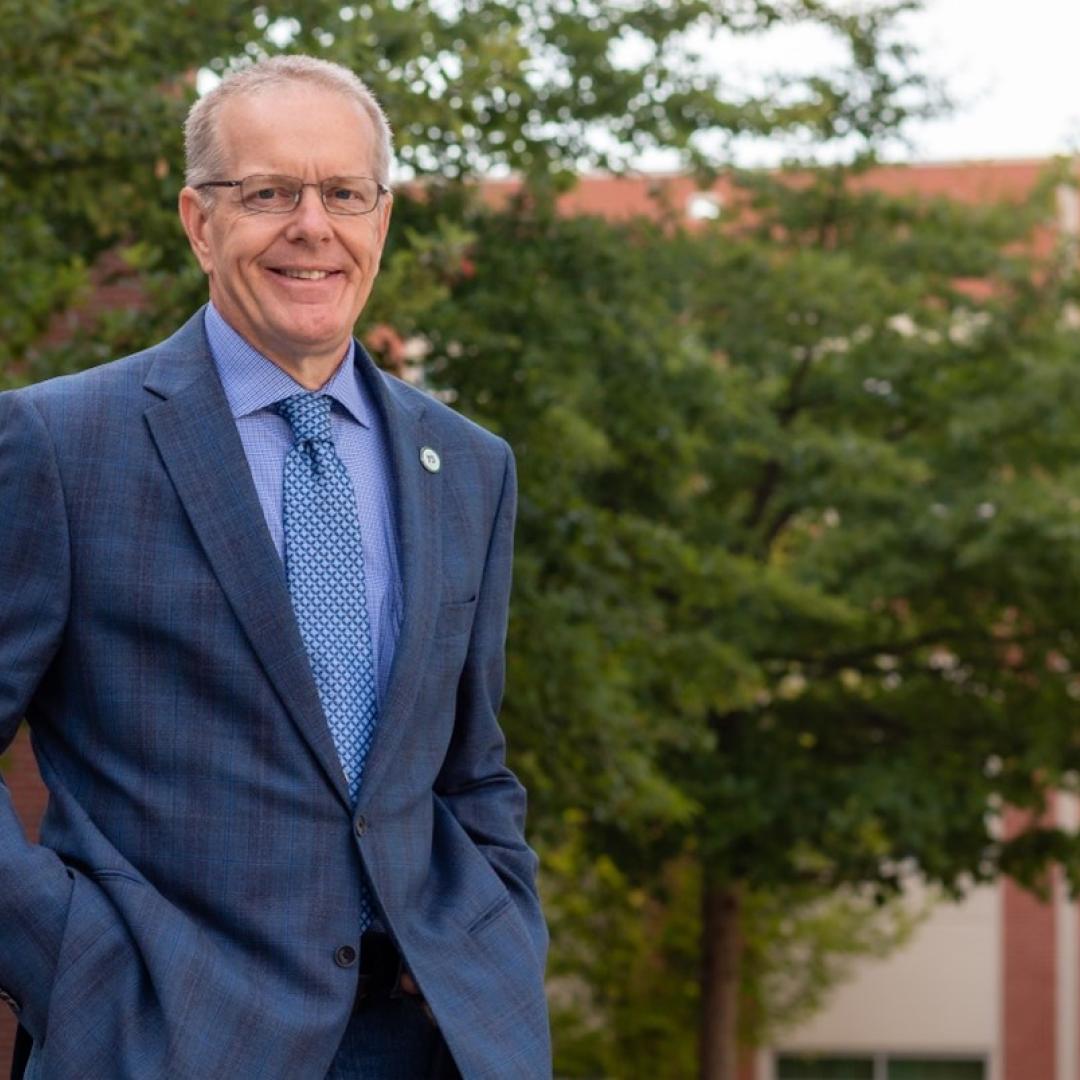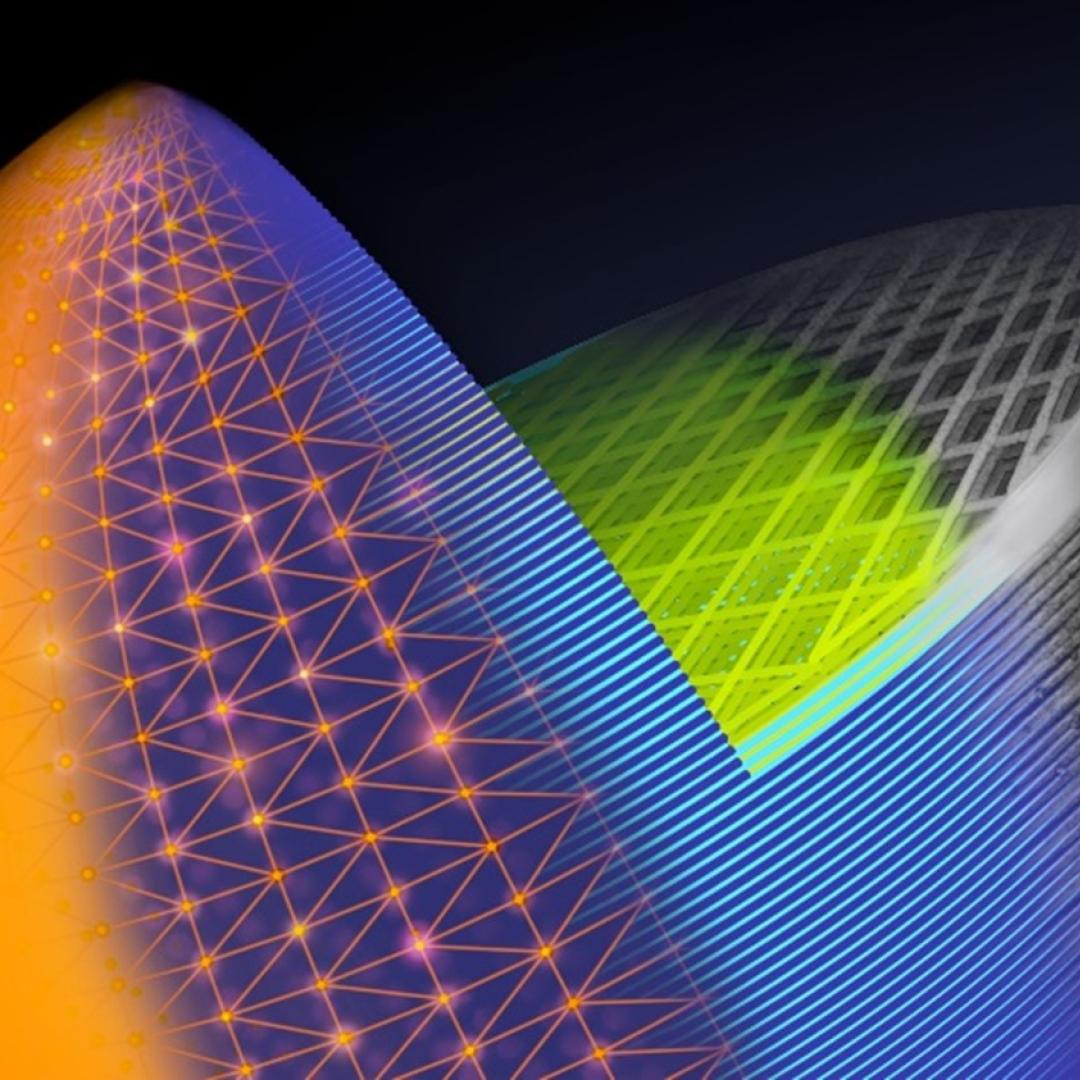
Filter News
Area of Research
News Topics
- (-) Energy Storage (28)
- (-) Molten Salt (1)
- (-) Quantum Computing (20)
- 3-D Printing/Advanced Manufacturing (37)
- Advanced Reactors (8)
- Artificial Intelligence (46)
- Big Data (22)
- Bioenergy (50)
- Biology (58)
- Biomedical (28)
- Biotechnology (11)
- Buildings (18)
- Chemical Sciences (22)
- Clean Water (14)
- Climate Change (48)
- Composites (6)
- Computer Science (82)
- Coronavirus (17)
- Critical Materials (2)
- Cybersecurity (14)
- Decarbonization (45)
- Education (1)
- Emergency (2)
- Environment (101)
- Exascale Computing (25)
- Fossil Energy (4)
- Frontier (24)
- Fusion (30)
- Grid (23)
- High-Performance Computing (43)
- Hydropower (5)
- Isotopes (27)
- ITER (2)
- Machine Learning (22)
- Materials (41)
- Materials Science (44)
- Mathematics (6)
- Mercury (7)
- Microelectronics (2)
- Microscopy (20)
- Nanotechnology (16)
- National Security (35)
- Net Zero (8)
- Neutron Science (47)
- Nuclear Energy (54)
- Partnerships (16)
- Physics (28)
- Polymers (8)
- Quantum Science (30)
- Renewable Energy (1)
- Security (11)
- Simulation (30)
- Software (1)
- Space Exploration (12)
- Summit (30)
- Sustainable Energy (43)
- Transformational Challenge Reactor (3)
- Transportation (27)
Media Contacts
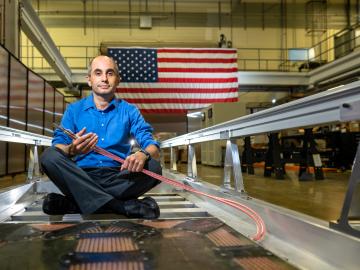
Burak Ozpineci started out at ORNL working on a novel project: introducing silicon carbide into power electronics for more efficient electric vehicles. Twenty years later, the car he drives contains those same components.
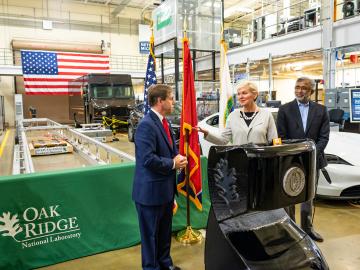
Energy Secretary Jennifer Granholm visited ORNL on Nov. 22 for a two-hour tour, meeting top scientists and engineers as they highlighted projects and world-leading capabilities that address some of the country’s most complex research and technical challenges.
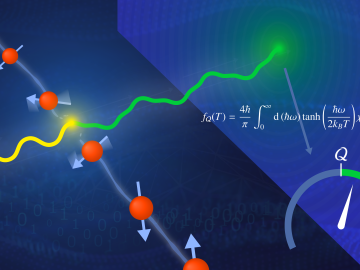
A team led by the U.S. Department of Energy’s Oak Ridge National Laboratory demonstrated the viability of a “quantum entanglement witness” capable of proving the presence of entanglement between magnetic particles, or spins, in a quantum material.
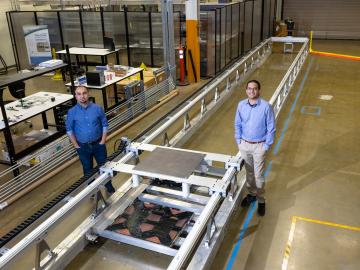
Consumer buy-in is key to the future of a decarbonized transportation sector in which electric vehicles largely replace today’s conventionally fueled cars and trucks.

Through a consortium of Department of Energy national laboratories, ORNL scientists are applying their expertise to provide solutions that enable the commercialization of emission-free hydrogen fuel cell technology for heavy-duty
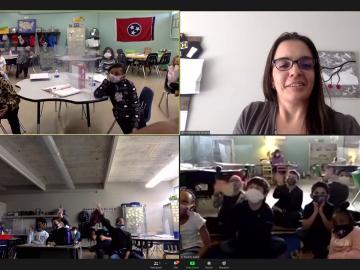
Twenty-seven ORNL researchers Zoomed into 11 middle schools across Tennessee during the annual Engineers Week in February. East Tennessee schools throughout Oak Ridge and Roane, Sevier, Blount and Loudon counties participated, with three West Tennessee schools joining in.
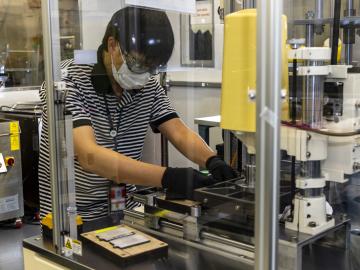
Soteria Battery Innovation Group has exclusively licensed and optioned a technology developed by Oak Ridge National Laboratory designed to eliminate thermal runaway in lithium ion batteries due to mechanical damage.
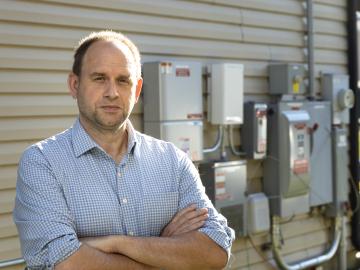
Joe Hagerman, ORNL research lead for buildings integration and controls, understands the impact building technology innovations can have during times of crisis. Over a decade ago, he found himself in the middle of one of the most devastating natural disasters of the century, Hurricane Katrina.
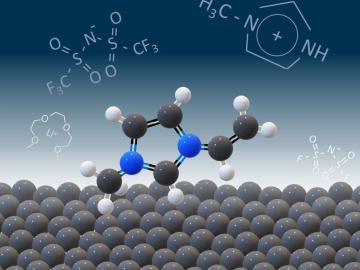
Scientists seeking ways to improve a battery’s ability to hold a charge longer, using advanced materials that are safe, stable and efficient, have determined that the materials themselves are only part of the solution.
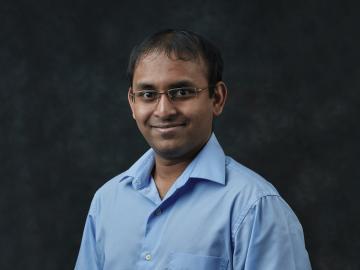
Suman Debnath, a researcher at ORNL, has been elevated to the grade of senior member of the Institute of Electrical and Electronics Engineers (IEEE).


